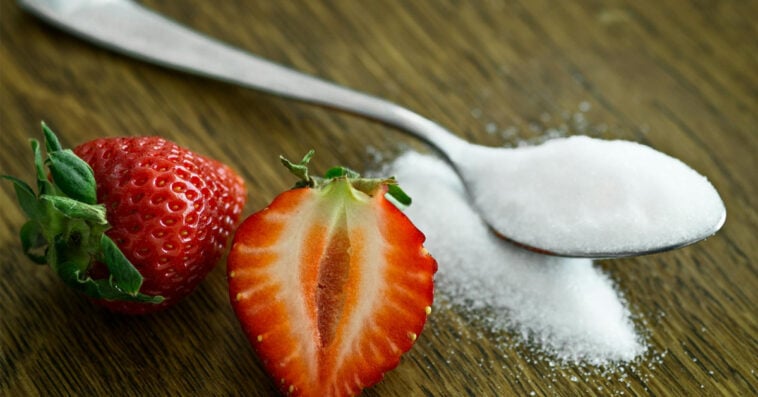A seemingly guilt-free sugar substitute may come with a hidden cost to your health. Erythritol, a popular ingredient in sugar-free snacks and drinks, is now under scrutiny as new research links it to a potential increase in stroke risk. The findings raise fresh concerns about the safety of everyday “healthier” choices that millions rely on. Keep reading to find out how this sweetener may be silently altering brain blood flow—and why scientists are sounding the alarm.
Study Reveals How Erythritol May Harm Brain Health
From “sugar-free” sodas to keto-friendly snacks and low-carb desserts, erythritol has become a go-to sweetener for health-conscious eaters. But while it may promise fewer calories and stable blood sugar, new research from the University of Colorado Boulder suggests this sugar substitute may come with hidden dangers—especially for the brain.
Published in the Journal of Applied Physiology, the study reveals that erythritol may increase the risk of stroke by altering how brain blood vessels function.
“Our study adds to the evidence suggesting that non-nutritive sweeteners that have generally been purported to be safe, may not come without negative health consequences,” said senior author Christopher DeSouza, a professor of integrative physiology and director of the university’s Integrative Vascular Biology Lab.
Erythritol, which was approved by the FDA in 2001, is a type of sugar alcohol typically made by fermenting corn. It contains almost no calories, is around 80% as sweet as sugar, and doesn’t cause blood sugar spikes—making it popular among people managing weight, diabetes, or low-carb diets.
But concerns have been growing. A large study involving 4,000 people in the U.S. and Europe recently found that those with higher levels of erythritol in their bloodstream were significantly more likely to suffer a heart attack or stroke within three years.
To better understand why, DeSouza and graduate student Auburn Berry exposed human brain blood vessel cells to an amount of erythritol similar to what you’d find in one sugar-free drink. After just a few hours, the results were alarming.
The cells produced less nitric oxide, which helps blood vessels relax and widen. At the same time, they made more endothelin-1, a compound that causes vessels to tighten. When the researchers introduced a clotting agent, the cells also released much less of t-PA, a natural protein that helps dissolve blood clots. And finally, the treated cells showed a spike in harmful free radicals that can damage tissues and speed up aging.
“Big picture, if your vessels are more constricted and your ability to break down blood clots is lowered, your risk of stroke goes up,” said Berry. “Our research demonstrates not only that, but how erythritol has the potential to increase stroke risk.”
Study Limitations and Consumer Caution
While the findings raise important concerns, the researchers emphasize that their study has limitations. For one, the tests were done in a lab using human cells—not in live subjects—so more research in real people is still needed to fully understand the health impacts.
Additionally, the amount of erythritol used in the study was comparable to a single serving—like what you might find in one sugar-free beverage or snack. That means people who consume several servings a day could potentially face even greater risks.
Still, lead researcher Christopher DeSouza says the results are reason enough to take a closer look at your sweetener habits.
“Given the epidemiological study that inspired our work, and now our cellular findings, we believe it would be prudent for people to monitor their consumption of non-nutrient-sweeteners such as this one,” he said.
He also urges consumers to read product labels carefully and keep an eye out for erythritol or “sugar alcohol” in the ingredient list.
Source: Science Daily

